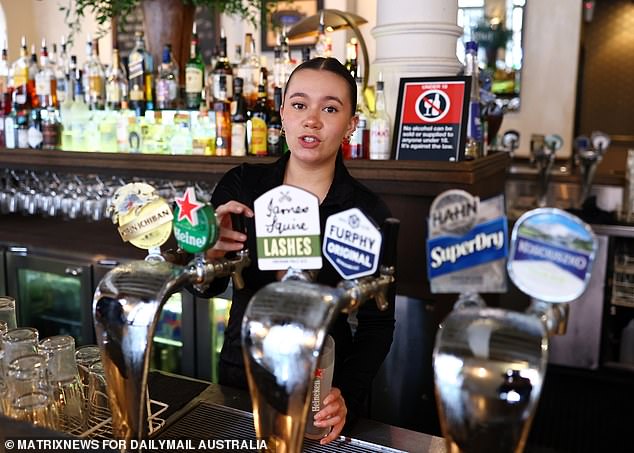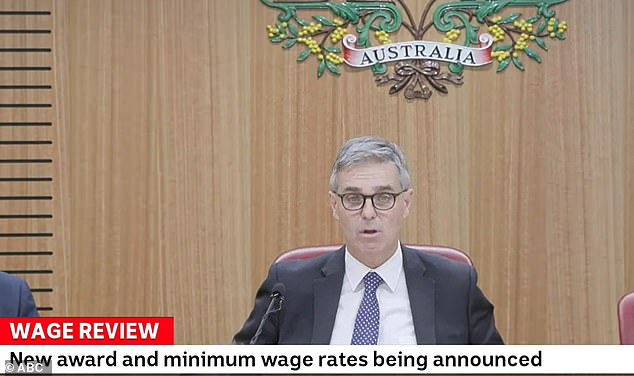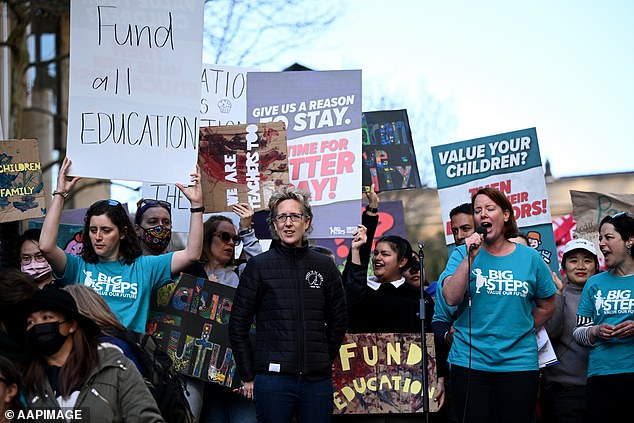
Australia’s lowest-paid workers have received the biggest wage increase since 1990 even though it’s well below inflation.
The Fair Work Commission on Friday granted a 5.75 per cent increase in the minimum wage and national awards, which will affect the pay of 2.67milion Australians – or one in four workers.
The annual wage review decision directly affects 180,000 workers on the minimum wage in the hospitality, tourism and aviation sectors but has flow-on effects for many more on national awards.
The national minimum wage is increasing by $46.72 a week to $859.32.
Fair Work Commission president Adam Hatcher said female workers in particular were suffering from high inflation.
Australia’s lowest-paid workers have received the biggest wage increase since 1990 (pictured is a Sydney bartender)

Fair Work Commission president Adam Hatcher said female workers in particular were suffering from high inflation
It marked the biggest annual increase since a 9.2 per cent rise was awarded in 1990.
But minimum wages, from July 1, will rise by far less than April’s monthly inflation rate of 6.8 per cent.
The 5.75 per cent increase is better than last year’s 5.2 per cent increase but only slightly above the 2006 rise of 5.7 per cent during the mining boom.
The Australian Council of Trade Unions had pushed for a 7 per cent increase so the minimum wage increase would match the inflation rate during the March quarter.
The monthly measure of inflation for April showed an increase to 6.8 per cent, up from 6.3 per cent, the Australian Bureau of Statistics revealed this week.
Employer groups had called for more restraint, with the Australian Chamber of Commerce and Industry advocating a 3.5 per cent increase.
Last year’s increase of 5.2 per cent was slightly above the inflation rate and marked the most generous increase since the old Australia Fair Pay Commission awarded a 5.7 per cent increase in 2006 during the mining boom.
Prime Minister Anthony Albanese’s Labor government had called on the Fair Work Commission to grant an increase in the minimum wage that would ensure Australia’s lowest paid didn’t go backwards during a cost of living crisis.
But Justice Hatcher, who was only appointed by Labor Employment Minister Tony Burke in February, hasn’t heeded that call.

The Australian Council of Trade Unions had pushed for a 7 per cent increase so the minimum wage increase would match the inflation rate during the March quarter (pictured is ACTU secretary Sally McManus)
Source: | This article originally belongs to Dailymail.co.uk